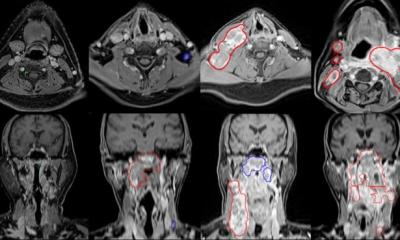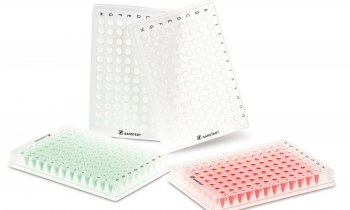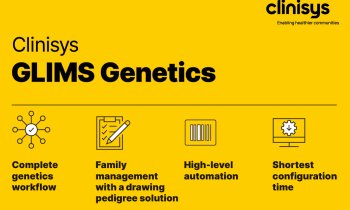Image source: Adobe Stock/ PatinyaS.
News • Precision oncology
Genomic sequencing benefits only 5% of cancer patients
In recent years, the use of genomic sequencing panels in cancer treatment has become widespread. These are tests that search the DNA of the patient's tumour for gene variants for which validated drugs are known, making the treatment more personalised and therefore more effective. They are part of what is known as precision oncology.
But a study by the Breast Cancer Clinical Research Unit at the Spanish National Cancer Research Centre (CNIO), led by Miguel Ángel Quintela, shows that genomic sequencing panels, as they are currently used in clinical practice, are only useful in 5% of patients (one in 20). The main reason is that the clinical criteria recommending the use of this type of test have been followed in only 40% of cases.
In 2020, Quintela's group published a review of the then current situation and proposed a guideline for the application of these genomic sequencing panels. In the current paper, published in the journal eClinicalMedicine from The Lancet group, the researchers have gone further, analysing the cases of 139 patients from two Madrid hospitals (Hospital Universitario de La Princesa and Hospital Universitario Quirónsalud Madrid). The results show that the survival rate was significantly higher in patients in whom the panels were used in accordance with the clinical criteria specified in the guidelines.
Recommended article

Article • Progress, limitations, and opportunities
Precision oncology: incredible potential, but not a miracle cure
Unanswered questions are hampering clinicians in their efforts to get the best out of a precision medicine approach for their patients. Speaking at the Genomics and Precision Medicine Expo in London at the end of May, cancer educator Dr Elaine Vickers said the benefits of being matched to an investigational drug remain questionable for most people with advanced cancer.
Use of these panels would be recommended for patients with metastatic lung cancer, colon cancer or melanoma who are candidates for first-line treatment. In these tumours, there are multiple genetic variants for which there is a drug that can be used as a treatment, so it is more efficient to perform a global test than to analyse each variant individually. The panels would also be useful for patients who are going to be part of a clinical trial, for patients with rare tumours for which there is no clear standard, and for tumours that respond very differently to what is expected—very good responses in tumours that normally do not react, or the other way around—as in these cases it is possible to find new associations between genetic variants and responses to drugs. The use of these panels following the recommended clinical criteria increases the efficacy of treatments and patient survival.
Waiting for results can take up to six weeks. During this time, the patient may be given a false hope of a cure and may delay starting another treatment or joining a clinical trial
Miguel Ángel Quintela
In contrast, the panels are not recommended for tumours that are progressing very rapidly, for cancers for which there is already a standard treatment option that does not require a complete genomic profile, or for patients with a short life expectancy. It is difficult to extrapolate the results of clinical trials to what might happen in actual patients because of the greater heterogeneity in real life. For this reason, real-world evidence, or the analysis of real cases, has become increasingly important in recent years. To reduce this heterogeneity, all patients in this study were tested with the same type of panel that analyses about 300 tumour genes.
According to the results, in the cases where the test was not appropriate, it was not possible to change the clinical outcome that the patients would have experienced had the test not been carried out. This type of study is therefore important to better understand the effectiveness of certain tests or treatments outside of clinical trials, or to assess the risks/benefits of offering them to patients, among others.
Both genetic sequencing panels and subsequent treatments are expensive. Neither is currently funded by the Spanish public health system, nor are they usually covered by private insurance. It is therefore important to determine whether these tests are useful or not, not only to avoid financial costs, but also to not lose time, which can be critical for the patient. "Waiting for results can take up to six weeks. During this time, the patient may be given a false hope of a cure and may delay starting another treatment or joining a clinical trial," says Quintela.
According to the authors of the study, it is important for health professionals to have recommendations on which to base their clinical decisions. However, they warn that each case is unique and there will always be exceptions in which the test is performed even if the patient's situation is not among those recommended by these guidelines. "We expect that our results will be of real clinical relevance for practicing clinicians that order [these tests] for patients with cancer [...] In the future, categorised clinical judgement should be established before ordering [genomic sequencing panel] tests, and testing should be performed preferentially in patients with either advanced cancers that routinely need multiple genetic markers, patients with advanced rare cancers, or patients that are screened for molecular clinical trials," the authors conclude in their study.
Source: Centro Nacional de Investigaciones Oncológicas
19.06.2023











